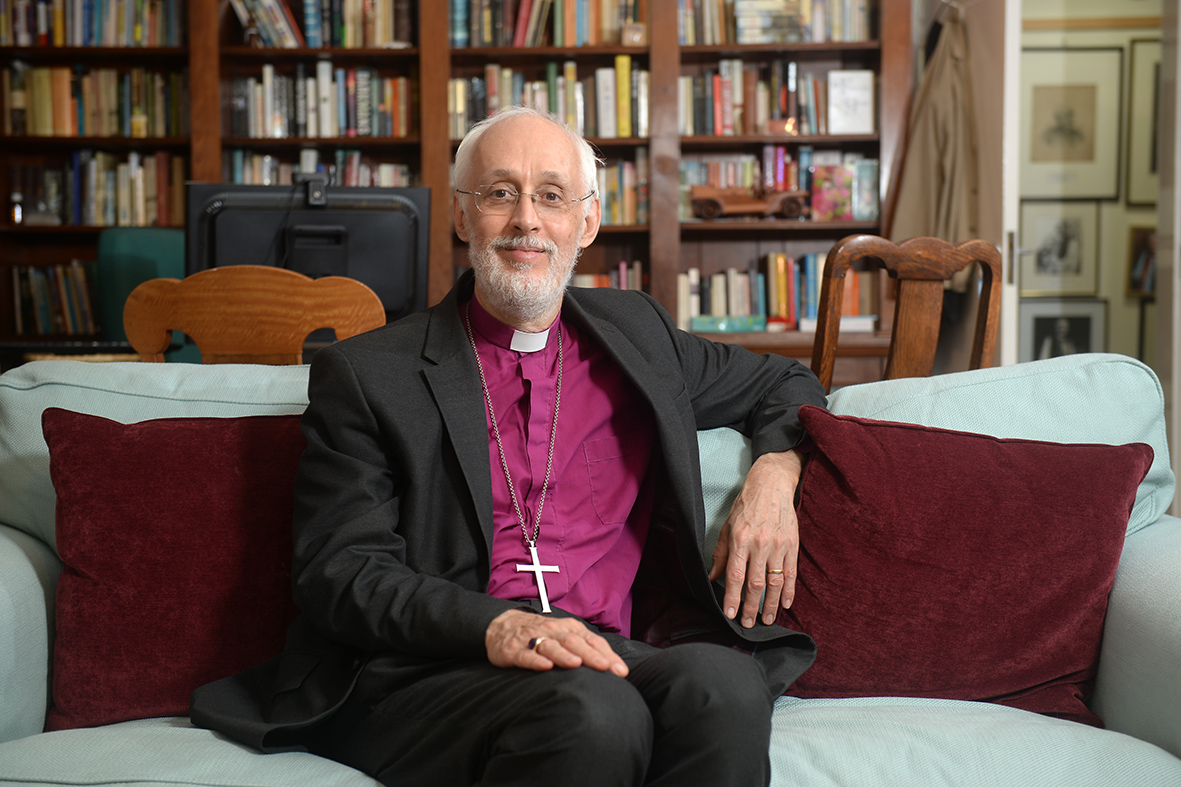 Following last week’s meeting of General Synod, where the future of safeguarding arrangements in the Church of England was debated, Bishop David has written a letter to clergy and lay leaders to share his thoughts on the decision-making process.
Following last week’s meeting of General Synod, where the future of safeguarding arrangements in the Church of England was debated, Bishop David has written a letter to clergy and lay leaders to share his thoughts on the decision-making process.
We will be gathering for a Service of Reflection for those involved in Safeguarding at Manchester Cathedral on Shrove Tuesday, 4th March, at 7pm. The service will include an opportunity for prayer and anointing, and all are welcome to attend.
------------------------------------------------------------------------
Dear sisters and brothers in Christ,
As you know, it is not my practice to provide a running commentary on matters that are proving contentious in the life of the wider church. However, following the recent General Synod debates on future models for greater independence in safeguarding, and the wide media coverage both before and after, I do think it worth setting down some brief reflections.
This was a well informed debate. Alongside the official papers, which presented arguments both for and against the main options, various external groups sent Synod members documents, or held online briefing sessions. It was also a well chaired debate, and one conducted in a serious and polite tone, recognising the gravity of the matters being discussed. Attention was paid to the impact such discussions have on victims and survivors, including those who are also members of Synod themselves, and support was available for any in the chamber distressed by the content of matters being discussed. I have no reason to doubt that everyone who spoke or voted, did so with the intention of making the Church of England as safe as possible.
As we were reminded at the outset, our Synod processes are designed to agree or disagree propositions - they do not easily lend themselves to considering a range of options. However, our time was structured so that all the likely models received full attention. Some of the speeches, across the range of options being supported, were extremely moving to hear. The rules and Standing Orders of Synod, require that if, on any vote, 25 members stand to support a vote by Houses, then voting must take place that way. On matters where strong opinions are held, and where voting appears likely to be quite evenly split, this threshold is invariably met. Hence, for such an Amendment to be accepted, or a final Motion to be passed, it has to succeed in all three Houses.
There are some matters where I consider it entirely appropriate for an Amendment or Motion to be defeated because it fails to gain a majority in the House of Bishops, notwithstanding majorities in the other two houses. However, I did not think that such a result would be good for the Church on this matter, and so committed myself to voting for each substantive Amendment as it came up, and for whatever final Motion came for approval.
Synod eventually voted for an Amendment moved by the Bishop of Blackburn, which found ground between the two original Models proposed. This will mean moving quickly to an independent scrutiny function whilst continuing to explore whether fully transferring all safeguarding functions, including Diocesan Safeguarding Officers, to the employment of an external agency, is both feasible and would further enhance safeguarding. Clearly, the result did not please everyone either within or beyond the Church, but that would have been the case wherever we had landed. The crucial vote on the Amendment was much less close than I had anticipated, with clear majorities in all three houses and a combined margin of around 60/40. The final Motion was then passed overwhelmingly.
We are blessed in the Diocese of Manchester with an excellent safeguarding team, led by Abbey Clephane-Wilson. Its work is overseen by the Diocesan Safeguarding Advisory Panel, where Dr Amanda Boodhoo, our independent chair, those with survivor experience, police and local authority representation, together provide robust challenge and support. We are also fortunate in our deeply committed Parish Safeguarding Officers.
Manchester is a practical diocese, on this as on other matters, whatever the National Church Institutions and Synod require, we will strive to make work as well as possible. I will continue to play my own part, as bishop of the diocese, as a member of the National Safeguarding Steering Group, and as vice chair of the Redress Board. I urge all of you to continue to keep safeguarding as a top priority in your own ministries.
May God bless each of us as we fulfil our responsibilities.
Bishop David Walker Monday, 17th February 2025